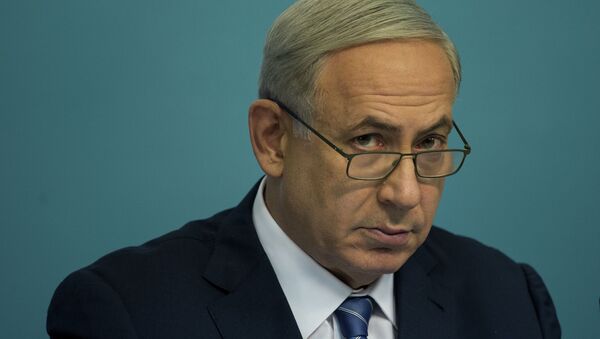"It is too early to ask about that. You should ask the Defense Ministry," Dmitry Peskov told reporters in Moscow after a query about the Russian government’s future relationship with Israel.
The spokesman confirmed that Putin was "aware of the information" presented, but added this was "special data," and only military experts were capable of saying whether it was satisfactory.
READ MORE: Russia-Israel Cooperation Will be More Effective After Il-20 Crash — Scholar
Dmitry Peskov dismissed Israeli media reports that Russian President Vladimir Putin did not answer calls from Syrian leader Bashar Assad after the crash of Russia's Il-20 aircraft in Syria.
"This is not true, do not believe these reports by Israeli media outlets," Peskov told reporters when asked to comment on Israeli media reports that the situation with the Il-20 angered Putin and he did not answer calls from Assad.
The Russian Defense Ministry said earlier this week that contact with Russia's Il-20 returning to the Hmeimim airbase was lost late on September 17. The ministry said that around that time four Israeli F-16 fighters attacked Syrian targets in Latakia. It said that Israeli pilots put the Russian aircraft under the attack of Syria's air defenses, and the Il-20 was shot down by an S-200 missile. Fifteen Russian servicemen were killed.
READ MORE: Putin, Security Council Discuss Servicemen Security in Syria After Il-20 Crash
The Defense Ministry said Israeli aircraft deliberately created a dangerous situation in Latakia. Israel had not warned the command of the Russian group of troops in Syria about the planned operation in the area. The Russian military said it regards Israel's provocative actions as hostile and reserves the right to a proper response.
Russia-US Relations
Modest efforts of public organizations to revive the Russia-US relations are hindered by the "hysteria sweeping through Washington," Kremlin spokesman Dmitry Peskov said on Friday.
"Unfortunately, I am not aware about this, so I find it difficult to answer the question. On the contrary, I would say that even modest attempts to revive the work and contacts through public groups have been actually constrained by the 'concrete wall' of this very hysteria which is sweeping through Washington and which we face every day," the spokesman said.
The remarks came after reporters asked Peskov whether the president was aware that some organizations, linked to the development of public diplomacy, had allegedly sent appeals to the Russian president following the Russia-US summit in Helsinki, but received no answer.
READ MORE: US Ready to Impose 'Very Severe' Sanctions on Russia Over Skripal Case
Russia intends to respond to unilateral restrictions on the part of the United States in line with the principle of reciprocity, it will adopt measures that best suit the national interests, Dmitry Peskov said.
"The measures that best suit the interests of the Russian Federation will be taken, since the United States very often resorts to such measures, they can't even be called sanctions, these are unilateral restrictions… We adhere and will adhere to the principle of reciprocity, this should not be doubted. And the main thing is that Moscow will do what is in its interests," Peskov said.
Peskov said the sanctions hysteria in Washington still dominates, hindering a sober assessment of prospects of bilateral relations. He said such actions by the US point to unfair competition, adding that Russian defense industry products are "super-competitive".
On Thursday, the United States added 33 people and entities to its Russian defense and intelligence sector blacklist, meaning that anyone who does business with them will face mandatory US sanctions under the Countering America's Adversaries Through Sanctions Act (CAATSA).
Putin's Potential Visit to France
The decision on the visit of Russian President Vladimir Putin to France for the centenary of the end of the World War I has not been made yet, Peskov said.
"No, we will tell you when there is a final decision, we will let you know," Peskov told reporters when asked if any decision has been made on the invitation Putin received to attend the anniversary.
French Ambassador to Russia Sylvie Bermann said last week Paris was hoping that Putin would accept the invitation and called the upcoming celebrations "a very important and symbolic forum."
The World War I lasted over four years. The ceasefire that put an end to active hostilities was signed on November 11, 1918, near the French commune of Compiegne.



